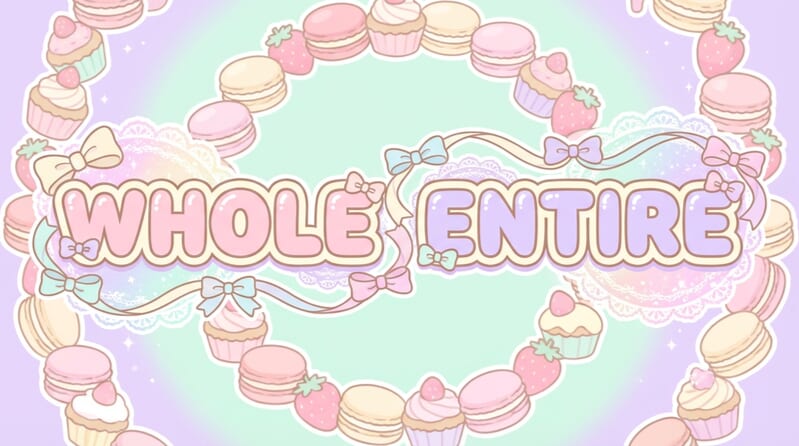英語跟中文一樣有很多同義語和令人困惑的詞語。
就算與英語母語者對話,也因為意思都能夠通順,所以不會注意到它們之間微小的語意差異,有時我們甚至沒有意識到自己錯誤地使用了英語。
今天我要來總結容易搞混的英語單字、短句來跟各位做介紹。
中文翻譯相同,但容易搞混的形容詞
高 tall、high
tall 距離地面較高 (從下到上的高)
high 形容處於上方較高的位置 (處於頂點、不用與地面接觸也沒關係),較高的數值、品質、聲音等事物。
My brother is very tall.
我的哥哥身高非常高。
That’s a tall building!
那棟建築真高!
The park has tall trees.
那個公園裡有高聳的樹木。
The house has high ceilings.
那棟房子有挑高的天花板。
Mount Everest is the highest mountain in the world.
珠穆朗瑪峰是世界上最高的山。
He has high blood pressure.
他有高血壓。
低short、low
short 身高或物體矮小、短小
low 高度或位置低;較低的數值、品質、聲音等事物
My son is short for his age.
我的兒子比同齡人的身高還矮。
The video was very short.
這部影片很短。
It’s the shortest day of the year today.
今天是今年最短的一天。
The house has low ceilings.
那個家裡的天花板很低。
My phone battery is running low.
我手機剩餘的電量越來越低。
This is a low-budget movie.
這是部低成本電影。
骯髒 dirty、messy
dirty 弄髒、不乾淨
messy 雜亂
All my clothes are dirty.
我全部的衣服都被弄髒了。
Please put dirty dishes in the dishwasher.
請把髒碗盤放進洗碗機裡。
Your room is so messy!
你的房間真亂!
His desk is always messy.
他的桌子總是很雜亂。
熱 hot、warm
hot 熱、燙
warm 溫暖、舒適的熱
Japan is hot and humid in summer.
日本的夏天很熱且潮濕。
The coffee was too hot to drink.
咖啡太燙了。
It’s nice and warm outside.
外面的天氣很舒適溫暖。
A bowl of warm soup is great in winter.
在冬天喝上一碗熱湯是最棒的享受。
寒冷 cold、cool
Cold 寒冷、冰涼
Cool 有涼意、涼爽
It’s cold outside today!
今天外面真冷!
The water was too cold for swimming.
水太冷了無法游泳。
It’s getting cooler at night.
晚上變得越來越涼爽了。
The plant grows best in cool climates.
那個植物最適合在涼爽的氣候生長。
溫柔 kind、gentle
Kind 善良、親切
Gentle 溫柔、沉穩
She is very kind to everyone.
她對每個人都很溫柔。
It was very kind of you to help me.
謝謝你這麼親切地幫我。
My dog is gentle with other animals.
我的狗對其他動物都很溫柔。
He has a gentle manner.
他的言行舉止很沉穩。
近 close、near
Close 距離近、關係近、親近
near 距離近、時間近
I live close to school.
我住在學校附近。
She is my close friend.
她是我的好朋友。
There are several parks near here.
這附近有好幾個公園。
He came home near midnight.
他在接近半夜12點的時候回到家。
容易搞混的名詞
day與date
day 星期幾
date 日期
A:What day is today?
B:It’s Monday.
A:今天星期幾?
B:星期一。
A:What date is it today?
B:It’s January 1st.
A:今天是幾月幾號。
B:今天1月1號。
Vacation與holiday
Vacation 休假
Holiday 節日
I’m on vacation right now.
我現在休假中。
Christmas Day is a national holiday in the U.S.
聖誕節在美國是國定假日。
reservation與appointment
reservation 預約房間或座位
appointment 預約某人
I’m going to make a reservation for the restaurant.
我預約一間餐廳。
I’m going to make an appointment with the dentist.
我預約牙醫。
Home與house
Home 家庭、居住場所(獨棟或公寓等)
House 家 (物理上的建築)
He has been away from home for two weeks.
他離開家已經二個禮拜了。
We bought a house two years ago.
我們兩年前買了這棟房子。
Apartment與mansion
Apartment 租賃的集合住宅 (公寓或大廈)
Mansion 豪宅、大宅第
I lived in an apartment for several years before buying a house.
我在買房子之前住在租賃公寓好幾年。
The movie star lives in a mansion in Hollywood Hills.
這部電影的明星住在好萊塢的大豪宅裡。
容易搞混的動詞
See與meet
See 見到認識的人、常見
Meet 見到初次見面的人、相遇
Nice to see you.
能再見到你我很高興。
Nice to meet you.
很高興見到你。
I saw him at my friend’s house last night.
我昨天晚上看到他在我的朋友家。
I met him at my friend’s house last night.
我昨天晚上在朋友家初次見到他。
Listen與hear
Listen 聽 (下意識去聽、仔細聽)
Hear 聽 (自然地聽、偶然聽到)
I like to listen to music.
我喜歡聽音樂。
Did you hear the thunder last night?
你昨晚有聽到雷聲嗎?
You should listen to your teacher.
你應該聽你老師的話。
Can you hear me?
聽得到我的聲音嗎?
*在講電話時用來跟對方確認是否聽得見聲音。
Borrow與lend
Borrow 借取 (自己跟某人無償借取)
Lend 借出 (自己無償借給某人)
Can I borrow your charger?
我可以借用你的充電器嗎?
I lent my car to my sister.
我把車子借給我妹妹。
Hope與wish
Hope 有可能的希望
Wish 實現不了的希望
We hope to see you again soon.
我們希望很快能再見到你。
I wish I could see my grandma again.
我好希望能再見到一次奶奶。
*奶奶因為過世等理由,所以無法再見到面。
容易搞混的短句
I don’t mind. 與 I don’t care.
I don’t mind. 沒關係、沒問題
I don’t care. 怎樣都好、沒有興趣
I don’t mind.與I don’t care.都是「不在意」意思的短句,但是I don’t care. 會根據表達方式與使用場景,產生出「怎樣都好,我沒有興趣」這種直言不諱的語感差異。
另外,當你被別人問到Do you mind if~? (你介意我做~~嗎?),必須注意你的回答。
A:Do you mind if I sit here?
B:No, I don’t mind.
A:我可以坐在這裡嗎?
B:沒問題,我不介意。
因為中文我們通常會回答「可以」,所以很多人在說英文時會說「Yes.」。
因為Do you mind if~?直譯的意思是「你介意我做~~嗎?」,所以如果回答「Yes.」的話就會變成「我介意」=「有問題」的意思。
但如果是真的想要拒絕的情況,比起單純回答「Yes.」,我們大多會用「My friend is sitting here.」(我朋友坐這裡。)或「I’m waiting for my friend.」(我在等我朋友。)等理由。
Do you have time? 與 Do you have the time?
Do you have time?
你有空嗎?
*詢問對方是否有空。
Do you have the time?
現在幾點了?
*詢問時間。
這2個句子非常相似,只要加上the就會變成完全不同的意思。
in time與on time
in time 時間內、趕上
on time 準時
I made it just in time for my flight.
我在最後關頭趕上飛機。
My brother is never on time.
我的哥哥從來都不準時。
總結
今天介紹了經常使用且常讓人難以區分的煩人單字與短句。
各位可以大量地聽取並使用,藉此來習慣這些用法之間的微妙差異喔。



















